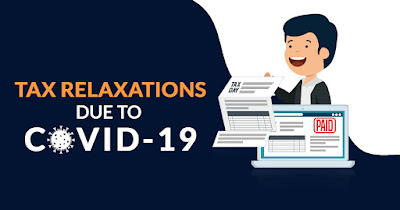Prime Minister Narendra Modi had earlier announced an economic package that was focused on land, labor, law, and liquidity to get the country’s economy on track, and Nirmala Sitharaman, Finance Minister has announced some measures as part of the Covid-19 relief package. The announcements will help businesses in one way or another and also help to boost the cash flows in the markets, but do you know all the measures announced by the Finance Minister? No, Right? Don’t worry, here they are
TDS and TCS Rate Reduction
- A deduction of 25% in existing rates for TDS for non-salary payments made to residents
- A deduction of 25% in the rate for TCS for specified receipts
- Now reduced TDS rates will be applied on payment made for rent, dividend, contract, professional fees, interest, commission, brokerage. The reduced TDS will be applied throughout the current Financial year
- The government expects that the reduction in TDS and TCS rates will result in the release of liquidity of Rs 50,000 crores
Revised TDS Rates
- The Government came with various revisions in TDS for the period between May 15, 2020, and March 31, 2021
- Payment of dividend, dividends by mutual funds, interest on securities, commission, interest under Section 194A, brokerage, and rent on the immovable property will now attract 7.5 percent TDS instead of existing TDS rate of 10 percent
- E-commerce participants and payment made for the acquisition of immovable property will now attract TDS at 0.75 percent instead of the existing rate of 1 percent
- TDS at 0.75 percent will be applied on payments made to contractors and sub-contractors by a Hindu Undivided Family or other corporate bodies which were earlier 1.5 percent
Due Dates Extended
- All income tax returns for FY 2019-20 having the last date July 31 and Oct. 31 can be filed till November 30, 2020
- The due date for Tax auditing has been stretched from Sept. 30 to Oct. 31, 2020
- The last date for assessment getting withheld on September 30 has been extended to December 31 and similarly, The last date for assessment getting withheld on March 31, 2021, has been extended till the end of September 2021
- Now payments under 'Vivaad Se Vishwas Scheme' can be made till Dec. 31 without any additional charges
The Government also announced that all the income tax refunds which are pending to charitable trusts and non-corporate businesses such as limited liability partnerships, sole proprietorships, cooperative societies, etc. will be released/ paid immediately. About all these announcements chairmen of Nangia Andersen Consulting, Rakesh Nangia said that "TDS TCS rates deduction coupled with the release of pending refunds to all non-corporate taxpayers, would fast-track the revival of business and enterprises,".


Comments
Post a Comment